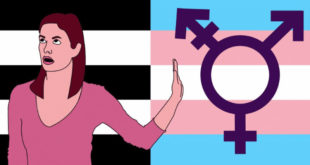Who even knew there were trannies in Japan?
One would assume there would be Thai and Filipino trannies at the bars. But actual Japanese trannies?
Say it ain’t so, ye noble pedophiles!
Satoko Oyama, a professor of social welfare at Japan Women’s University, stared in surprise at the results of a survey of the university’s staff about a proposal to admit transgender women.
The largest portion of the respondents, at about one-half, said they believed the proposal was feasible. About one-quarter, however, said they did not believe it was feasible. Another one-quarter said they did not know if it was feasible or not.
Concerns were raised in free-text answers, which said, for example, “I am not opposed, but I don’t think we are prepared.”
An in-house panel, which was arranging to start admitting transgender students at JWU from fiscal 2021, had no choice but to return to square one after the survey results were examined in January 2020.
JWU had begun discussing the matter in 2015 after the junior high school affiliated with the university received an inquiry from the guardian of a transgender girl.
Officials concluded then that the time was not right to admit the girl, but discussions went on within the university.
JWU is among a number of women’s universities in Japan that are moving to admit transgender students, who do not identify with the sex they were born in.
JWU officials, who decided to begin accepting transgender women from fiscal 2024, said the discussions on the matter led them to revisit the question of the significance of a women’s university.
‘WOMEN’ NOT ALL HOMOGENEOUSToward the end of fiscal 2018, JWU’s board of directors was advancing discussions toward the goal of accepting transgender women from fiscal 2020 under the notion that the university should be reorganized to allow diverse women to study together.
The prospective start date, however, was put off by a year at that time because some of the university’s staff said they did not believe that the time was right. The January 2020 staff survey was taken following the delay.
The survey showed that concerns were more deep-rooted than Oyama had expected.
“I had this feeling that, given the state of things, pushing the proposal through was not the right thing to do,” she said.
Some students choose to attend a women’s university because they find it difficult to live under traditional gender norms. Others do so because they are afraid of men. The environment that allows those students to do so could be compromised when transgender students are admitted, some skeptics said.
Oyama and her colleagues therefore decided to focus on having dialogue. They set up an in-house email hotline dedicated to diversity issues. They also worked with gender-specialist counselors to offer interviews to students who requested ones.
The university officials also attempted gradually to dispel the anxiety of students, partly by presenting real-life accounts of transgenders.
And they announced in June 2020 that the university was allowing transgender students to take entrance exams starting with those for admission in fiscal 2024.
An internal project for promoting diversity was also set up by interested students, who began organizing, among other things, events themed on gender diversity.
“The process led me to recognize once more that gender is so diverse and realize that ‘women,’ as such, are never homogeneous,” Oyama said.
She also felt it was coming under question once again why women’s universities should still exist in this day and age, when gender diversity is broadly recognized and larger percentages of women are going on to universities, the professor added.
JWU President Satoko Shinohara said: “It is an undeniable fact that women, including transgender females, are oppressed in Japanese society today. Women’s universities have unshakable significance as an asylum from that sense of oppression.”
Ochanomizu University in 2018 was the first women’s university in Japan to announce that it would be admitting transgender students. Nara Women’s University and Miyagi Gakuin Women’s University followed suit.
Earlier this fiscal year, Notre Dame Seishin University, which is also for women, said it will accept transgender women from fiscal 2023.
Discussions are also under way at women’s universities that have yet to decide on admitting transgender students.
Tsuda University set up a dedicated panel in 2017 and has organized lecture sessions, including one where transgenders were invited to speak, and training sessions for the staff.
“We could end up hurting transgender students, even if we were to admit them, as long as our understanding of gender diversity remains shallow,” said Haruto Saito, secretary-general with Tsuda University. “It is essential to deepen understanding within the university while developing programs and equipment that are currently available.”
Japan Women’s University used to be like a fantasy out of the… like out of the Middle Ages, or something.
But those days are done.
It’s tranny time now.
 Daily Stormer The Most Censored Publication in History
Daily Stormer The Most Censored Publication in History


